Quotes
45 Empowering Charles Duhigg Quotes to Make Habits Stick
Published
3 years agoon

There is nothing we love more than empowering individuals to take control over their lives.
Charles Duhigg embodies much of what we share on Execute Resources. He’s a man who has figured out how to make habits stick so you get a bigger chunk out of life.
His most popular book, The Power of Habit, really gave him the spotlight. From the time of its launch, it remarkably spent more than 3 years on the NY Times Bestseller List.
He’s a trail-blazer in not just sticking to habits but uncovering the ethics (or lack thereof) with large tech companies such as Apple. However, you’re here on Execute Resources for the positivity and life-changing lessons.
In that case, this list of quotes will help you in making your habits stick for the long term.
1. There’s nothing you can’t do if you get the habits right.
Charles Duhigg
2. If you want to do something that requires willpower—like going for a run after work—you have to conserve your willpower muscle during the day.
Charles Duhigg
3. Change might not be fast and it isn’t always easy. But with time and effort, almost any habit can be reshaped.
Charles Duhigg
4. The key to victory was creating the right routines.
Charles Duhigg
5. Habits can be changed, if we understand how they work.
Charles Duhigg
6. Simply giving employees a sense of agency- a feeling that they are in control, that they have genuine decision-making authority – can radically increase how much energy and focus they bring to their jobs.
Charles Duhigg
7. How are you going to study tonight? What are you going to do tomorrow? How do you know you’re ready for your test?’ It trained me to set goals.
Charles Duhigg
8. Champions don’t do extraordinary things. They do ordinary things, but they do them without thinking, too fast for the other team to react. They follow the habits they’ve learned.
Charles Duhigg
9. The brain has this amazing ability to find happiness even when the memories of it are gone.
Charles Duhigg
10. The best agencies understood the importance of routines. The worst agencies were headed by people who never thought about it, and then wondered why no one followed their orders.
Charles Duhigg
11. Most of the choices we make each day may feel like the products of well-considered decision making, but they’re not. They’re habits.
Charles Duhigg
12. Someday soon, say predictive analytics experts, it will be possible for companies to know our tastes and predict our habits better than we know ourselves.
Charles Duhigg
13. This explains why habits are so powerful: They create neurological cravings. Most of the time, these cravings emerge so gradually that we’re not really aware they exist, so we’re often blind to their influence. But as we associate cues with certain rewards, a subconscious craving emerges in our brains that starts the habit loop spinning.
Charles Duhigg
14. When a habit emerges, the brain stops fully participating in decision making. It stops working so hard, or diverts focus to other tasks. So unless you deliberately fight a habit—unless you find new routines—the pattern will unfold automatically.
Charles Duhigg
15. All our life, so far as it has definite form, is but a mass of habits – practical, emotional, and intellectual – systematically organized for our weal or woe, and bearing us irresistibly toward our destiny, whatever the latter may be.
Charles Duhigg
16. There’s a natural instinct embedded in friendship, a sympathy that makes us willing to fight for someone we like when they are treated unjustly.
Charles Duhigg
17. Self-discipline predicted academic performance more robustly than did IQ. Self-discipline also predicted which students would improve their grades over the course of the school year, whereas IQ did not.… Self-discipline has a bigger effect on academic performance than does intellectual talent.
Charles Duhigg
18. o at most companies, an unspoken compact emerges: It’s okay to be ambitious, but if you play too rough, your peers will unite against you. On the other hand, if you focus on boosting your own department, rather than undermining your rival, you’ll probably get taken care of over time.
Charles Duhigg
19. Changing any habit requires determination.
Charles Duhigg
20. This is how willpower becomes a habit: by choosing a certain behavior ahead of time, and then following that routine when an inflection point arrives.
Charles Duhigg
21. I think I’m smart, and I know I was a good mom. But there wasn’t a lot I could point to and say, that’s why I’m special.
Charles Duhigg
22. Typically, people who exercise, start eating better and becoming more productive at work. They smoke less and show more patience with colleagues and family. They use their credit cards less frequently and say they feel less stressed. Exercise is a keystone habit that triggers widespread change.
Charles Duhigg
23. Want to exercise more? Choose a cue, such as going to the gym as soon as you wake up, and a reward, such as a smoothie after each workout. Then think about that smoothie, or about the endorphin rush you’ll feel. Allow yourself to anticipate the reward. Eventually, that craving will make it easier to push through the gym doors every day.
Charles Duhigg
24. Willpower isn’t just a skill. It’s a muscle, like the muscles in your arms or legs, and it gets tired as it works harder, so there’s less power left over for other things.
Charles Duhigg
25. Rather, to change a habit, you must keep the old cue, and deliver the old reward, but insert a new routine.
Charles Duhigg
26. Experiments have shown that almost all habitual cues fit into one of five categories: Location, Time Emotional state Other people Immediately preceding action.
Charles Duhigg
27. This is the real power of habit: the insight that your habits are what you choose them to be.
Charles Duhigg
28. That’s why signing kids up for piano lessons or sports is so important. It has nothing to do with creating a good musician or a five-year-old soccer star,” said Heatherton. “When you learn to force yourself to practice for an hour or run fifteen laps, you start building self-regulatory strength. A five-year-old who can follow the ball for ten minutes becomes a sixth grader who can start his homework on time.
Charles Duhigg
29. But to change an old habit, you must address an old craving. You have to keep the same cues and rewards as before, and feed the craving by inserting a new routine.
Charles Duhigg
30. Giving employees a sense of control improved how much self-discipline they brought to their jobs.
Charles Duhigg
31. The Golden Rule of Habit Change: You can’t extinguish a bad habit, you can only change it.
Charles Duhigg
32. Studies have documented that families who habitually eat dinner together seem to raise children with better homework skills, higher grades, greater emotional control, and more confidence.
Charles Duhigg
33. Small wins are exactly what they sound like, and are part of how keystone habits create widespread changes. A huge body of research has shown that small wins have enormous power, an influence disproportionate to the accomplishments of the victories themselves. “Small wins are a steady application of a small advantage,” one Cornell professor wrote in 1984. “Once a small win has been accomplished, forces are set in motion that favor another small win.”4.14 Small wins fuel transformative changes by leveraging tiny advantages into patterns that convince people that bigger achievements are within reach.
Charles Duhigg
34. As people strengthened their willpower muscles in one part of their lives—in the gym, or a money management program—that strength spilled over into what they ate or how hard they worked. Once willpower became stronger, it touched everything.
Charles Duhigg
35. And the best way to strengthen willpower and give students a leg up, studies indicate, is to make it into a habit.
Charles Duhigg
36. Habits are powerful, but delicate. They can emerge outside our consciousness, or can be deliberately designed. Habits often occur without our permission, but can be reshaped by fiddling with their parts. They shape our lives far more than we realize—they are so strong, in fact, that they cause our brains to cling to them at the exclusion of all else, including common sense.
Charles Duhigg
37. Companies aren’t families. They’re battlefields in a civil war.
Charles Duhigg
38. Good leaders seize crises to remake organizational habits.
Charles Duhigg
39. Habits, scientists say, emerge because the brain is constantly looking for ways to save effort.
Charles Duhigg
40. Small wins are a steady application of a small advantage.
Charles Duhigg
41. It is facile to imply that smoking, alcoholism, overeating, or other ingrained patters can be upended without real effort. Genuine change requires work and self-understanding of the cravings driving behaviours.
Charles Duhigg
42. This process within our brains is a three-step loop. First, there is a cue, a trigger that tells your brain to go into automatic mode and which habit to use. Then there is the routine, which can be physical or mental or emotional. Finally, there is a reward, which helps your brain figure out if this particular loop is worth remembering for the future: THE HABIT LOOP
Charles Duhigg
43. If you believe you can change – if you make it a habit – the change becomes real.
Charles Duhigg
44. Whether selling a new song, a new food, or a new crib, the lesson is the same: If you dress a new something in old habits, it’s easier for the public to accept it.
Charles Duhigg
45. There’s nothing you can’t do if you get the habits right.
Charles Duhigg

Joshua is the editor of Execute Resources. He actively sources the best bites of motivation for the Execute Resources library. As a company, we believe in empowering individuals by creating epic content that moves real humans forward! Execute daily. Empower Your life. Build a legacy.

